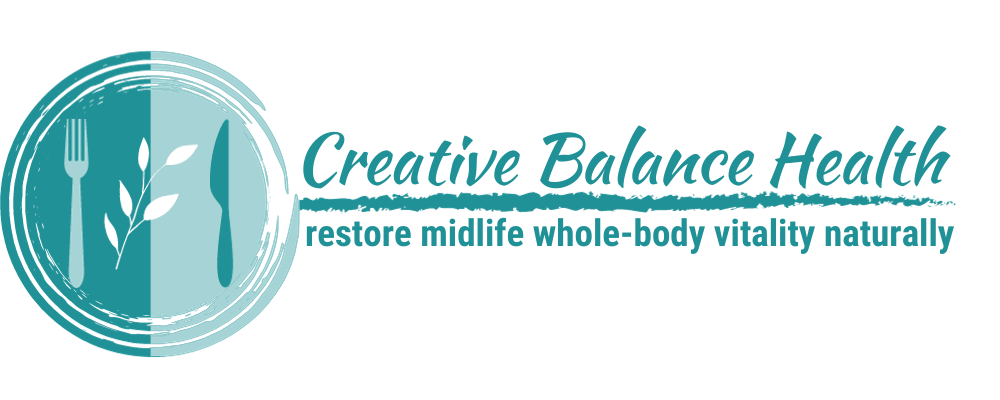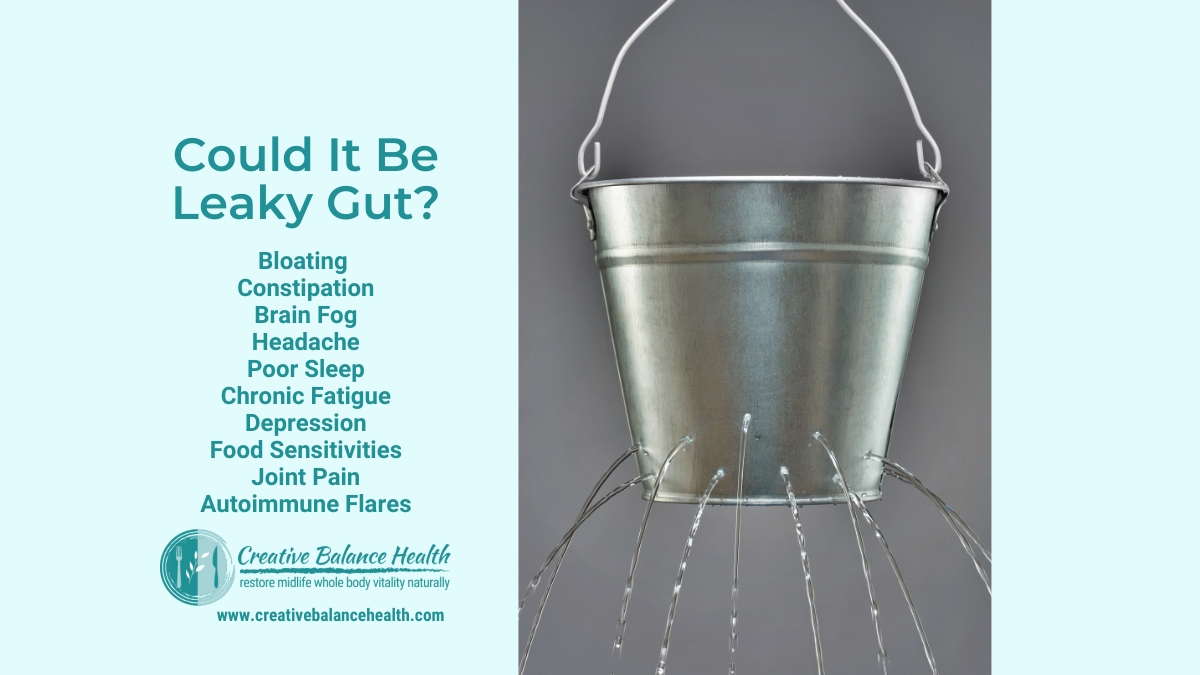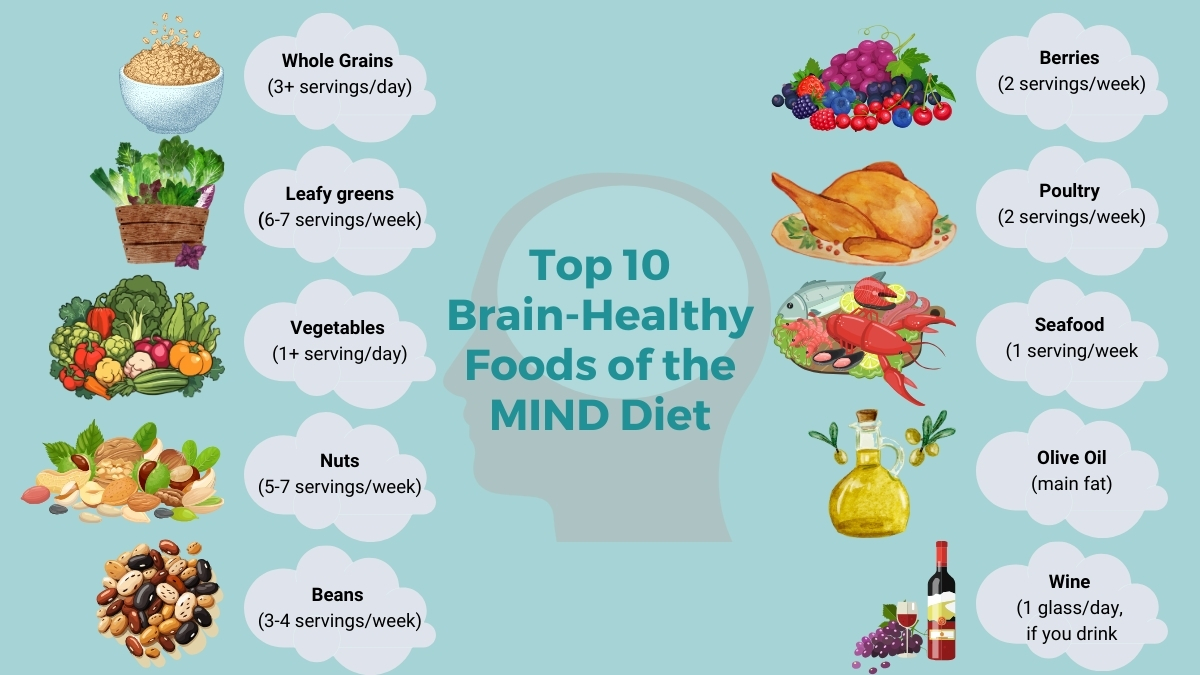Consequences, causes, and healing prevention
Years ago, when I was finally given the right functional lab test learned I was dealing with chronic fatigue, gut pathogens (overall bacterial imbalance, nasty bacteria, and even some parasites!), and food intolerances to wheat and dairy. I was also told I had “Leaky Gut Syndrome.” Of all the conditions I was diagnosed with, Leaky Gut sounded the most alarming to me. I mean when a boat or car leaks, red lights go on and the situation can become dire if not attended to immediately!
What I came to understand is that even though I could push through all of my stress and chaos at work and home and appear stable and calm on the outside, my lifestyle was creating lots of inflammation and metabolic breakdowns on the inside. My impaired gastrointestinal environment, or gut biome, was directly contributing to my fatigue, eczema, infections, autoimmune thyroid issues, and low levels of Vitamin D, all of which were making it more and more difficult for me to function well in my career and personal life.
Symptoms of Leaky Gut
Medical experts generally cite these common symptoms of a leaky gut:
- Bloating, constipation, or chronic diarrhea
- Nutritional deficiencies
- Headaches, memory loss, brain fog
- Excessive fatigue
- Skin rashes and skin problems like eczema and acne
- Cravings for carbs and sugar
- Joint pain
- Depression
- Autoimmune diseases
- Food sensitivities
Read on to learn more about what Leaky Gut really is, the consequences if not treated, what causes it, and ways to heal and prevent Leaky Gut from happening to you.
Leaky Gut Defined
Leaky gut syndrome, or increased gut permeability, is when the intestinal mucosal membrane becomes damaged due to inflammation and stress and allows particles such as nutrients as well as toxins from food to pass through into the bloodstream.
In a healthy gut the microvilli, a single layer of cells and finger-like structures, are held together with proteins called tight junctions. When digested food reaches the microvilli, the tight junctions loosen up just enough to allow the good nutrients and vitamins to pass into the hepatic portal vein. This vein brings the nutrients, vitamins, and toxins into the liver for detoxification.
When inflamed, the microvilli become blunted and shorter, causing the protein junctions to widen into larger gaps. This increased gut permeability puts an increased load on the liver, so some of the toxins may escape and enter the bloodstream. The larger food particles that can now pass through are mistakenly considered harmful foreign substances that don’t belong, alerting the body’s protective immune system to eliminate them. Autoimmune disorders occur when this protective immune defense mechanism turns on itself and attacks healthy tissue causing damage.
In a healthy gut, the single-cell layer of the microvilli is held together with proteins called tight junctions. When digested food reaches the microvilli, the tight junctions loosen up just enough so that the nutrients can get into the bloodstream, keeping larger food particles out.
Although an increased intestinal permeability (leaky gut) is a real symptom recognized by science, alternative medicine practitioners and nutritionists most frequently identify this unique medical condition. Proponents claim that leaky gut results in chronic inflammation throughout the body, contributing to a wider range of conditions like rheumatoid arthritis, chronic fatigue syndrome, migraines, lupus, autism, and multiple sclerosis.
Causes of Leaky Gut
Leaky gut actually has no single cause; however, there are several common factors that contribute to this condition:
- Chronic Stress
Prolonged stress tends to change a person’s immune system as well as its ability to quickly respond. It also affects your body’s ability to heal.
- Microbial Imbalance
Dysbiosis is known as a microbial imbalance within the body that contributes to a leaky gut syndrome. When there is an imbalance of healthy and unhealthy bacteria in the gut microbiota, harmful and opportunistic bacteria, viruses, fungi (Candida), and even parasites may begin to colonize the gut biome and start to crowd out the necessary bacteria. Then the pathogens and food antigens, such as gluten, push their way to the intestinal wall’s lining and break down brush borders. When a leaky gut is suspected, it is advised to have gastrointestinal integrity and the presence of potential pathogens evaluated.
- Environmental Contaminants
Daily exposure to numerous environmental and household chemicals puts stress on a person’s immune defenses and the ability of their body to repair itself. This leads to chronic delays in routine repairs. Immune systems can only address one issue or area at a time, so if they are concentrated on the digestive system, other parts of the body will be affected. The connective tissues start to break down and individuals lose traces of minerals like potassium, calcium, and magnesium. The environmental chemicals are depleting reserves to buffer minerals, resulting in cell swelling. This is referred to as leaky cells.
- Excessive Alcohol
Alcoholic beverages have ingredients that are proven to be toxic to the cells and the body. Excessive consumption can contribute to the development of a leaky gut.
- Poor and Unhealthy Food Choices
Low-fiber diets increase the transit time of food, enabling toxic digestion by-products to collect and irritate gut mucosa. Diets consisting of highly processed foods are known to damage the intestinal lining. It is also essential to note that even the foods that you usually think of as healthy, like eggs, wheat, and milk, can irritate the gut lining.
Preventing and Healing a Leaky Gut
- One of the most effective ways to heal leaky gut is to change your diet and eliminate foods that the body considers toxic. Take a thorough food sensitivity test like the MRT or Zoomer series to identify foods that are problematic to you. You can reintroduce some of the foods gradually once your gut has fully healed.
- Eliminate inflammatory foods like gluten, soy, refined sugar, alcohol, caffeine, and dairy.
- Consume organic, chemical-free, nutrient-rich foods that are easy to digest while healing.
- Support the gut with appropriate spore probiotics and herbs like licorice, marshmallow, and slippery elm, that will help repair your intestinal wall lining.
- Identify and eliminate any opportunistic gut pathogens – such as H. Pylori, parasites, harmful bacteria or imbalances, and fungal issues like Candida – along with immune reactivity markers by taking a stool pathogen test. I highly recommend the scope and thoroughness of Diagnostic Solutions Lab’s GI-Map test.
- Drink lots of pure water to keep hydrated and help flush out toxin die-off.
- Reduce emotional and environmental stressors. Try meditation and focused breathwork to calm your nerves. Swap out any toxic household, personal care, and beauty products for cleaner, more natural, alternatives.
I have healed my own leaky gut issues and helped many clients with theirs. I did this by providing access to the right functional lab tests and resources, identifying their optimal foods, and creating a stress-reducing lifestyle plan, so they could restore their vitality and feel good in their bodies again. To learn more about how you could benefit from one of my health-building programs, schedule a complimentary 30-minute Health Discovery Session call with me today.
Image: Photo by Yuris Alhumaydy on Unsplash







